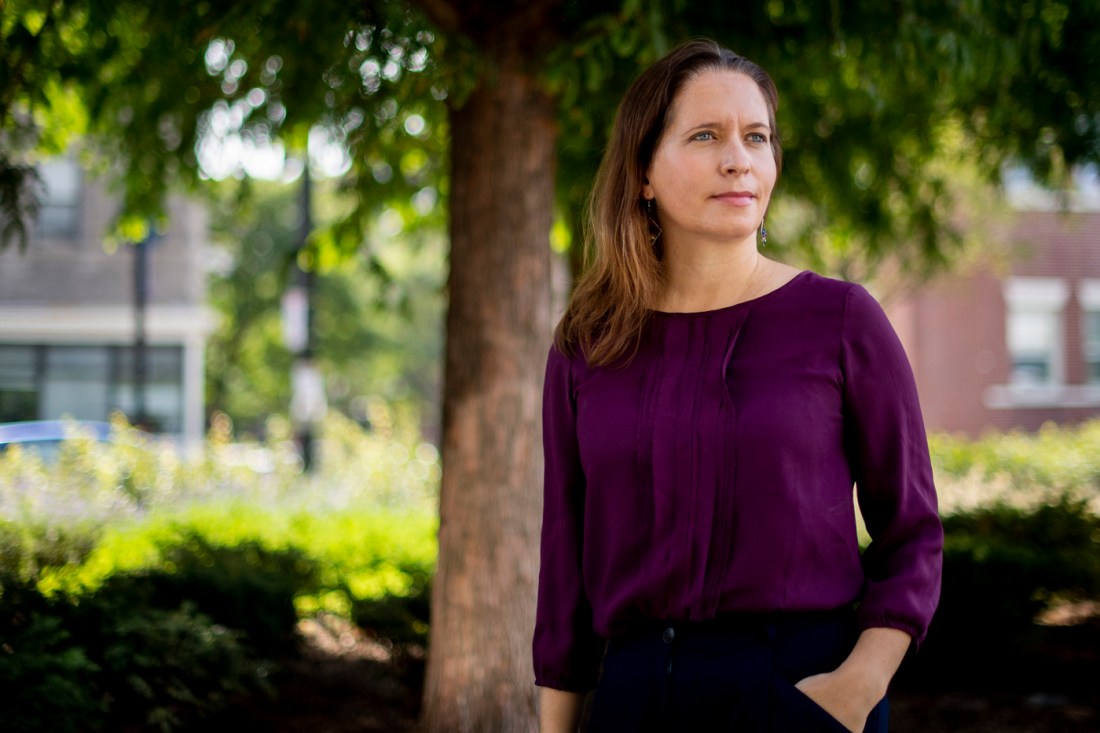“From the climate’s perspective, we are not making progress,” says Jennie Stephens, professor of sustainability science and policy at Northeastern University.
“We need to phase out fossil fuels,” she says, “and that’s not going to happen until there are major changes in the financial system.”
New research by Stephens and co-author Martin Sokol, an economic geographer and associate professor of geography at Trinity College Dublin, explores the role of central banks in the climate crisis. By failing to address the instability inherent in climate change, central banks are failing at their primary responsibility, Stephens and Sokol write.
“Their mandate is stability,” Stephens says, “and there’s no way to have stability in the future unless financial systems respond to climate destabilization.”

“The National Climate Assessment that just came out in November reports that the United States is already spending $150 billion a year responding to climate disruptions,” Stephens, who has studied climate change for over 30 years, says.
The climate crisis is already destabilizing the financial system. “It’s not an option to just ignore it.”
Unfortunately, central banks have so far taken a backseat on climate policy, and the United States Federal Reserve is among the most reluctant, Stephens says. “Temperature, floods, fires, droughts, food scarcity, water access. Fires and then the smoke from the fires,” she says, all pose financial threats as well as existential ones.
“All of these are symptoms of climate instability,” she continues. However, “we aren’t all equally vulnerable. That’s where the lens of climate justice comes in.”
Climate justice, Stephens and Sokol write in their article, “prioritizes social, economic and institutional innovations that link technical change with societal transformation by centering social justice and economic equity.”
The “communities and households and regions of the world [that] are already experiencing intense climate suffering is an injustice,” Stephens says, “because most of those places and people are not the places and people where the most emissions are resulting from.”
Stephens argues that central banks are in the prime position to promote climate justice. If we stay on the present course, she says, “we will continue to respond to the climate crisis in ways that just perpetuate all of these inequities and disparities.” But that would mean missing out on an opportunity to reshape the world in a more just manner.
“We can respond to the climate crisis in ways that prioritize justice,” she goes on, “and actually make investments in the communities and for the people that are most vulnerable and [have] been marginalized historically.”
“That’s the opportunity ahead of us.”
One potential solution that Stephens and Sokol propose is adjustable interest rates for different kinds of projects. “We could have zero interest loans, or even negative interest loans, [with which] you actually pay people to do something that you want them to do.”
While this may sound like a radical idea, negative interest loans for vulnerable households and communities could be a powerful tool to combat climate change and promote social and economic justice at the same time.
“Often,” Stephens says, “people in poorer communities don’t have money to insulate their homes.” This leads to a vicious cycle of paying more for their heating and using more fossil fuels. This leads to impoverished communities paying more for their heating than wealthy ones.
Providing zero or negative interest loans to improve the efficiency of homes, then, wouldn’t be an “extractive, exploitative, financialized way of doing it, but [could] really encourage people and support people in the changes that are needed.”
Ultimately, however, the central banks need to accept responsibility for promoting financial stability in the face of climate crisis, Stephens says.
“Of course we need new technologies” as well, she continues. “Technological innovation is important, but we also need financial innovation. It is the flow of money that is preventing the changes that are needed.”
“The most important thing would be to acknowledge the instability associated with climate,” she says. “They will not be able to fulfill their stability mandate until and unless they acknowledge that they have a role to play in encouraging future stability — financial stability — through monetary policy.”
“Responding to the climate crisis in a way that promotes justice, social justice, economic justice, health and racial justice and reduces disparities among us all is an opportunity ahead of us.”
Despite the difficulties that might be caused by central banks unwilling — for now — to heed the call, Stephens remains hopeful. “All kinds of communities from all parts of the world are rising up and saying, ‘Things are getting worse and worse, and we need to change these systems.’”
And because transformation doesn’t occur along a linear progression, she says, there’s still time to make radical, equitable change. “Transformation can happen quickly — once it happens.”
“We need big societal change, and we can’t just have business as usual.”
Noah Lloyd is a Senior Writer for NGN Research. Email him at n.lloyd@northeastern.edu. Follow him on X/Twitter at @noahghola.
